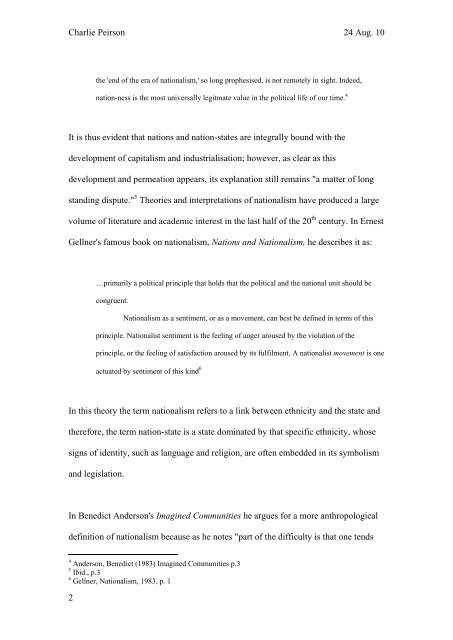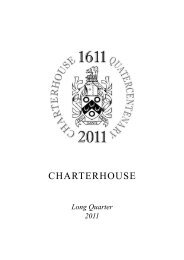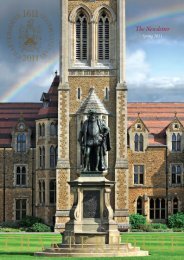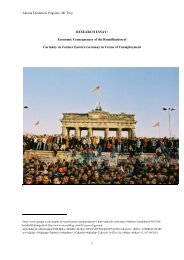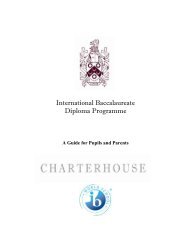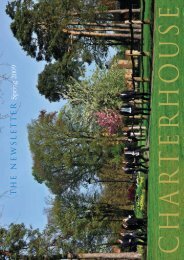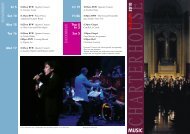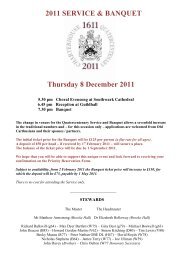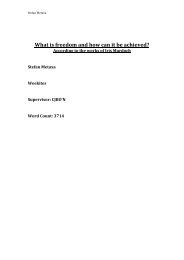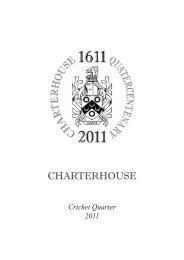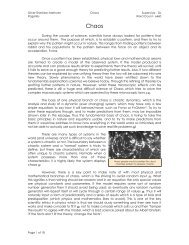Nationalism and Racism: Their Relationship and ... - Charterhouse
Nationalism and Racism: Their Relationship and ... - Charterhouse
Nationalism and Racism: Their Relationship and ... - Charterhouse
Create successful ePaper yourself
Turn your PDF publications into a flip-book with our unique Google optimized e-Paper software.
Charlie Peirson 24 Aug. 10<br />
the 'end of the era of nationalism,' so long prophesised, is not remotely in sight. Indeed,<br />
nation-ness is the most universally legitmate value in the political life of our time. 4<br />
It is thus evident that nations <strong>and</strong> nation-states are integrally bound with the<br />
development of capitalism <strong>and</strong> industrialisation; however, as clear as this<br />
development <strong>and</strong> permeation appears, its explanation still remains "a matter of long<br />
st<strong>and</strong>ing dispute." 5 Theories <strong>and</strong> interpretations of nationalism have produced a large<br />
volume of literature <strong>and</strong> academic interest in the last half of the 20 th century. In Ernest<br />
Gellner's famous book on nationalism, Nations <strong>and</strong> <strong>Nationalism</strong>, he describes it as:<br />
…primarily a political principle that holds that the political <strong>and</strong> the national unit should be<br />
congruent.<br />
<strong>Nationalism</strong> as a sentiment, or as a movement, can best be defined in terms of this<br />
principle. Nationalist sentiment is the feeling of anger aroused by the violation of the<br />
principle, or the feeling of satisfaction aroused by its fulfilment. A nationalist movement is one<br />
actuated by sentiment of this kind 6<br />
In this theory the term nationalism refers to a link between ethnicity <strong>and</strong> the state <strong>and</strong><br />
therefore, the term nation-state is a state dominated by that specific ethnicity, whose<br />
signs of identity, such as language <strong>and</strong> religion, are often embedded in its symbolism<br />
<strong>and</strong> legislation.<br />
In Benedict Anderson's Imagined Communities he argues for a more anthropological<br />
definition of nationalism because as he notes "part of the difficulty is that one tends<br />
4 Anderson, Benedict (1983) Imagined Communities p.3<br />
5 Ibid., p.3<br />
6 Gellner, <strong>Nationalism</strong>, 1983, p. 1<br />
2


